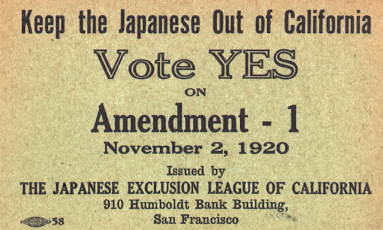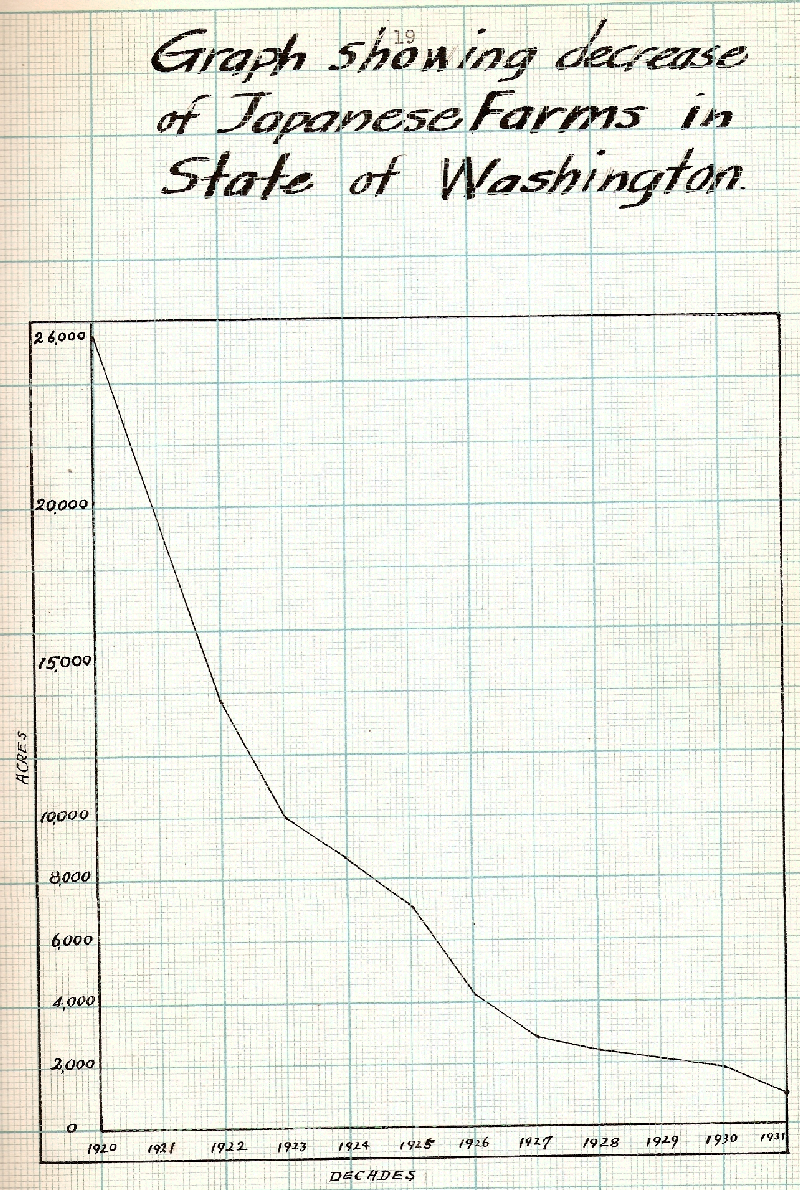
Promotion for the 1920 Alien Land Law, 1920, National Museum of American History
“By the law adopted we offer no offense; we make no discrimination. The offense and discrimination are contained, it is claimed, in the use if the words “eligible to citizenship,” and in making a distinction between those who are eligible to citizenship and those who are not. We do not mention the Japanese of any particular race.”
~ Hiram Johnson, California Governor
